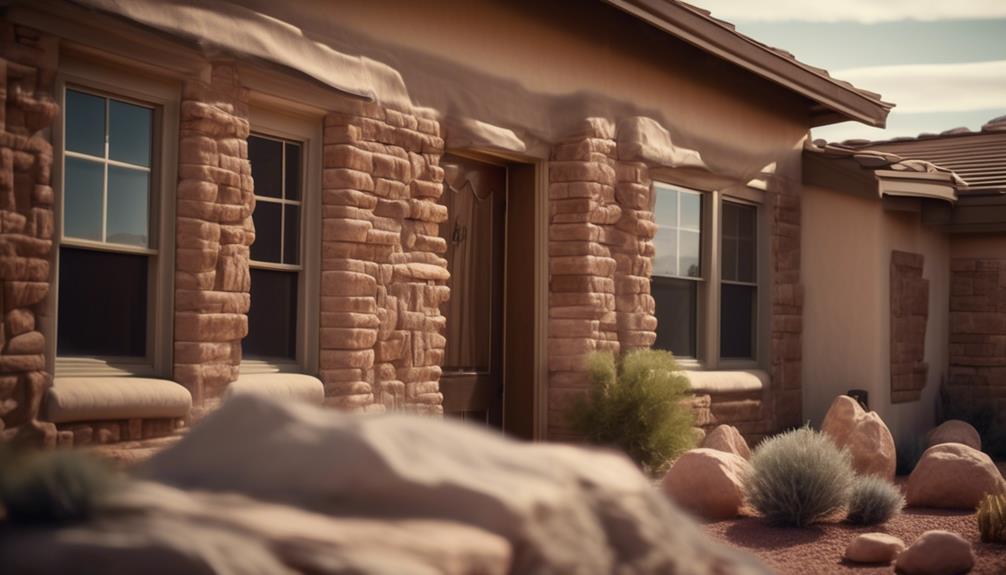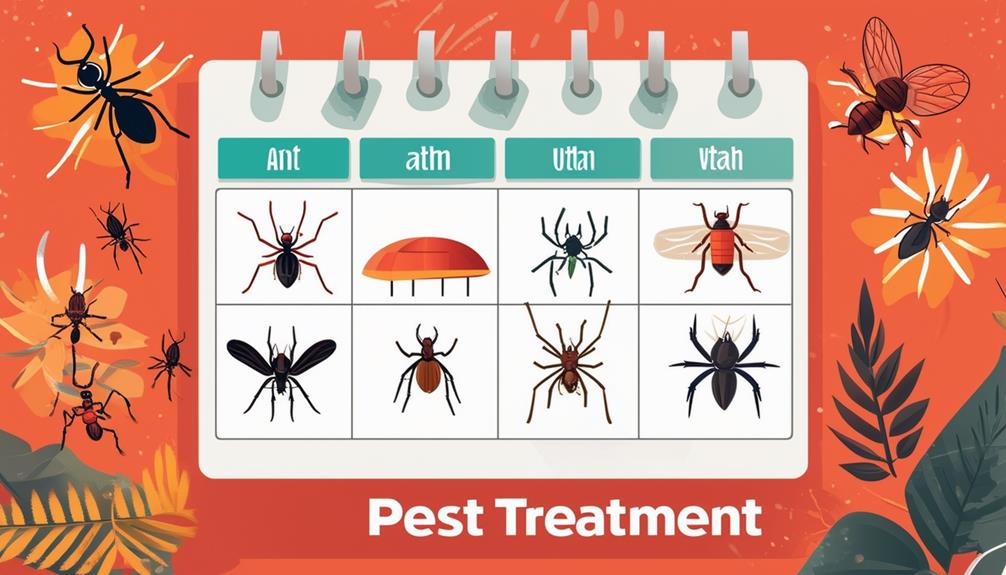Imagine a peaceful neighborhood, where homes are nestled among the red rocks and breathtaking landscapes of St. George, Utah. However, lurking in the shadows are uninvited guests, seeking refuge in the warmth and comfort of your home.
These unwanted intruders come in the form of rodents, and they can cause extensive damage and pose health risks to you and your family. But fear not, for there are key strategies that can help you prevent their entry and maintain a rodent-free environment.
By implementing these measures, you can safeguard your home and create a haven of tranquility in the midst of this beautiful city.
Key Takeaways
- Inspect and seal exterior gaps and holes that rodents can use to enter, such as around doors and windows, utility line openings, and cracks in the foundation.
- Store food in sealed containers made of glass or metal, clean up spills or crumbs immediately, and regularly sweep or vacuum floors to remove food debris.
- Keep the property clean and clutter-free by properly managing waste, trimming shrubs and trees, and removing piles of leaves and debris.
- Use rodent deterrents like natural repellents, electronic devices, and traps to discourage and catch rodents without causing harm. Regularly inspect and maintain the property, paying attention to potential entry points and taking immediate pest control measures if signs of rodent activity are noticed.
Seal All Entry Points
To effectively prevent rodents from entering your home in St. George, Utah, it’s essential to seal all potential entry points.
Rodents are sneaky creatures that can squeeze through even the tiniest cracks, so it’s important to be thorough in your rodent proofing techniques.
Start by inspecting the exterior of your home for any gaps or holes that rodents could use to gain access. Common entry points include gaps around doors and windows, openings for utility lines, and cracks in the foundation.
Use caulk or weatherstripping to seal these openings and prevent rodents from getting in.
Additionally, consider installing door sweeps and mesh screens on vents and chimneys to further deter them.
Remove Potential Food Sources
Now that you have sealed all potential entry points to prevent rodents from entering your home in St. George, Utah, it’s time to address the next step: removing potential food sources.
Effective rodent prevention and pest control involves eliminating any food sources that may attract these unwanted critters. Start by ensuring that all food is stored in sealed containers made of sturdy materials such as glass or metal. This will prevent rodents from accessing and contaminating your food.
Be sure to clean up any spills or crumbs immediately and regularly sweep or vacuum your floors to remove any food debris. Additionally, consider installing a garbage can with a tight-fitting lid to prevent rodents from rummaging through your trash.
Keep Your Property Clean and Clutter-Free
Keeping your property clean and free of clutter is essential in preventing rodents from infesting your home in St. George, Utah. Proper waste management is crucial to discourage rodents from finding sources of food and shelter. Make sure your trash bins have tight-fitting lids and are emptied regularly. Avoid leaving food scraps or uncovered pet food outside, as these can attract rodents.
Additionally, maintaining your landscaping and yard is important. Trim overgrown shrubs and trees, as they can provide hiding places for rodents. Remove piles of leaves and debris, as they can also serve as hiding spots. A well-maintained yard not only enhances the appearance of your property but also reduces the likelihood of rodent infestation.
Use Rodent Deterrents and Traps
Consider using natural repellents and electronic deterrents to effectively prevent and control rodent infestations in your home in St. George, Utah.
Natural repellents, such as peppermint oil or vinegar, can be applied in areas where rodents are likely to enter, deterring them with their strong scent.
Electronic deterrents, such as ultrasonic devices, emit high-frequency sound waves that are intolerable to rodents, effectively keeping them away from your home.
Additionally, using traps can help in catching and removing any rodents that have already entered your home. Snap traps or live traps can be strategically placed in areas where rodent activity is observed, ensuring their capture without causing harm.
Regularly Inspect and Maintain Your Property
To effectively prevent and control rodent infestations in your home in St. George, Utah, it’s essential to regularly inspect and maintain your property. By conducting routine property maintenance, you can identify and address potential entry points for rodents, such as gaps in doors, windows, and walls.
Pay close attention to areas where utility lines enter your home, as rodents can easily squeeze through small openings. Additionally, keep your property clean and clutter-free, as rodents are attracted to food sources and hiding spots. Regularly emptying garbage cans, sealing food containers, and removing debris from your yard can help deter these pests.
If you notice any signs of rodent activity, such as droppings or chewed wires, take immediate pest control measures to prevent a larger infestation. Remember, a well-maintained property is your first line of defense against rodents.
Frequently Asked Questions
How Do Rodents Typically Gain Entry Into Homes and Buildings?
To keep rodents out, you need to know how they get in. Rodents find entry points in common locations like gaps in doors and windows. Prevention strategies include using exclusion materials, storing food properly, and maintaining your property regularly. Look for signs of infestation and act promptly.
What Types of Materials Can Be Used to Seal Entry Points to Prevent Rodents From Getting In?
To prevent rodents from getting in, use materials like steel wool, wire mesh, or caulk to seal entry points. These methods are effective in blocking their access and keeping your home rodent-free.
Are There Any Specific Types of Food That Should Be Avoided or Stored Properly to Prevent Attracting Rodents?
You want to avoid attracting rodents, right? Well, here’s the deal: steer clear of leaving out any open food containers and make sure to store all food properly. Simple as that!
What Are Some Common Signs of a Rodent Infestation That Homeowners Should Be Aware Of?
Common signs of a rodent infestation include droppings, gnaw marks, and strange noises. To prevent them, seal any cracks or holes, keep food stored properly, and maintain cleanliness in your home.
How Often Should Property Owners Inspect and Maintain Their Property to Ensure It Remains Rodent-Free?
To keep your property rodent-free, it’s important to regularly inspect and maintain it. By doing this, you can catch any potential entry points and address them promptly, preventing rodents from gaining access.




